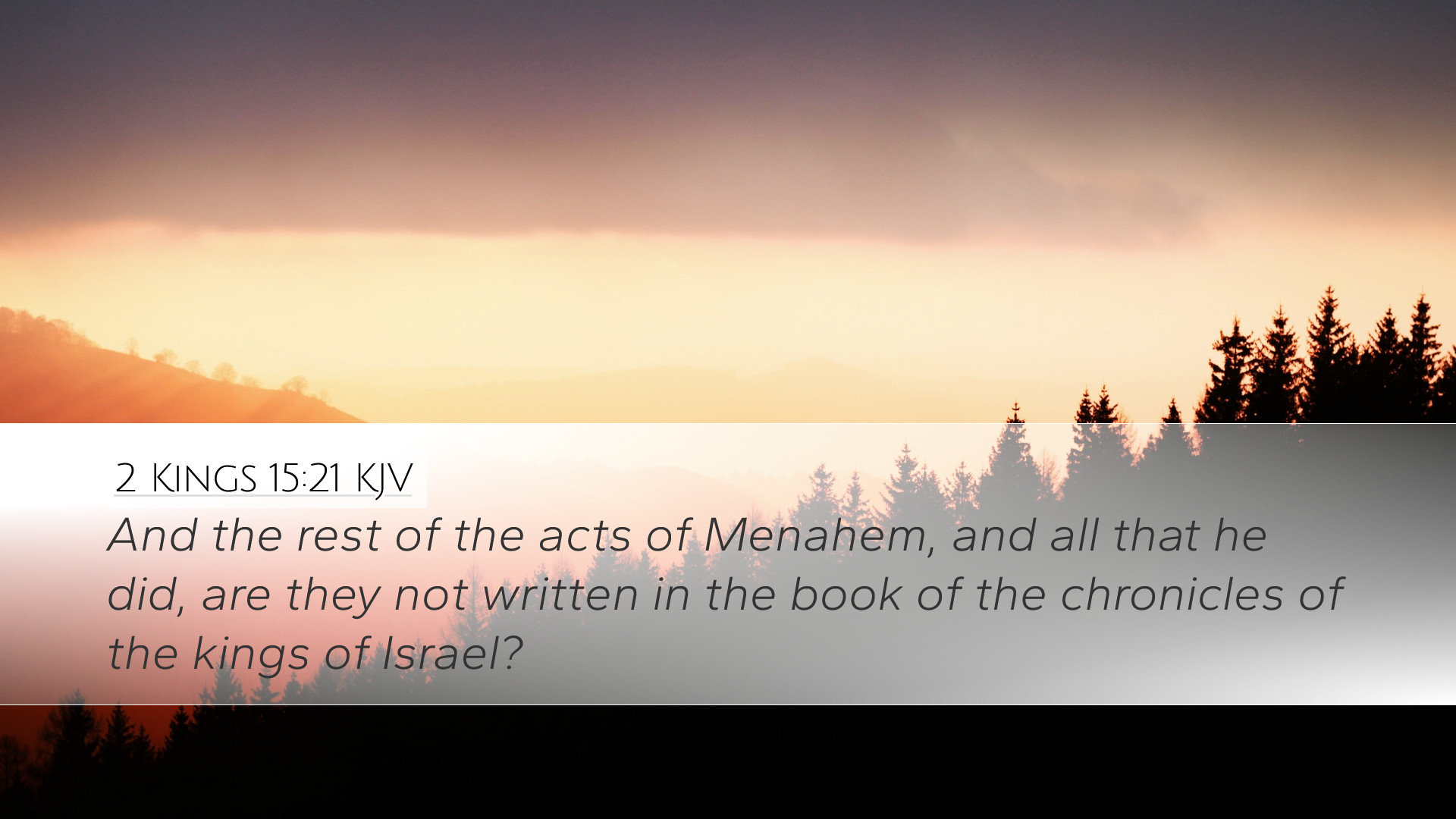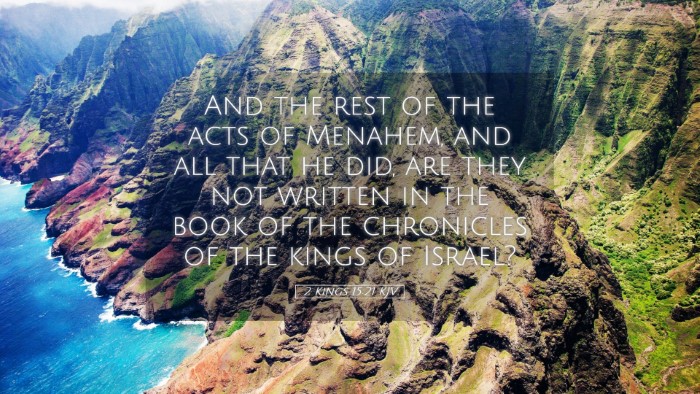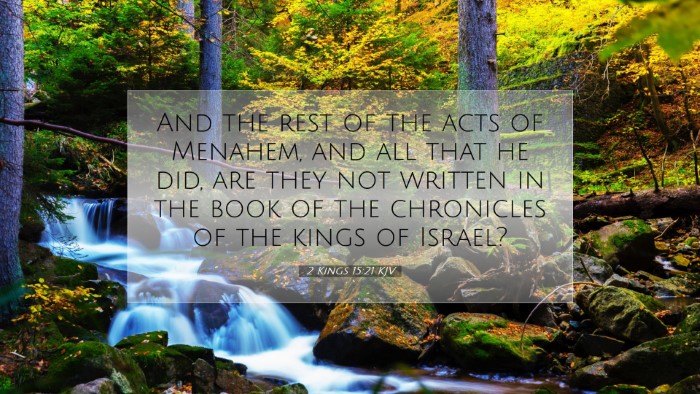Commentary on 2 Kings 15:21
Verse: "But the rest of the acts of Zachariah, and all that he did, are they not written in the book of the chronicles of the kings of Israel?" (2 Kings 15:21)
Authorship and Context
This verse serves as a transitional statement in the historical narrative of the kings of Israel. The reign of Zachariah, son of Jeroboam II, is marked by a brief and tumultuous period characterized by political instability. As summarizers of the historical accounts, public domain commentators such as Matthew Henry and Albert Barnes provide insights into why these succinct assessments are vital for understanding Israel's history during this epoch.
Significance of the Chronicles
The mention of the "book of the chronicles of the kings of Israel" indicates the existence of formal historical records that chronicled the events, achievements, and failures of Israel's rulers. Adam Clarke emphasizes that such writings were essential for the Israelites as they preserved national memory and provided lessons from past leadership.
Insights from Matthew Henry
Matthew Henry notes that despite the brevity of Zachariah's reign—lasting only six months—it was significant enough to warrant a recorded history. His commentary suggests that the recounting of Zachariah's actions serves two key purposes:
- Preservation of History: Each king's reign contributes to the broader tapestry of Israel’s national identity.
- Morality & Judgment: The acts of each king reflect the moral and spiritual state of the nation; the brief mention may imply a judgment on Zachariah's leadership and its consequences.
Insights from Albert Barnes
Albert Barnes provides a more analytical angle, exploring the implications of the phrase "the rest of the acts." He posits that such phrasing implies that Zachariah's actions were insufficiently notable or impactful to warrant detailed description. In a broader theological scope, this suggests the idea of divine oversight—where God is intimately aware of each leader's actions, and yet only those deemed most significant are recorded for posterity.
Insights from Adam Clarke
Adam Clarke highlights the political instability that surrounded Zachariah's reign, which reflects a period of significant upheaval. He interprets this instability as a broader moral decline in Israel, which is further exemplified in the kings succeeding Zachariah. Clarke suggests that the lack of further detail in the narrative is indicative of apathy or indifference toward leadership that does not align with God’s covenantal expectations, which ultimately leads to societal downfall.
Thematic Implications
Throughout the commentary, several themes emerge from 2 Kings 15:21:
- Leadership Accountability: Each king’s actions are under divine scrutiny, providing a lesson that those in positions of authority must lead with integrity and justice.
- The Sovereign Will of God: The narrative illustrates God’s providential control over history, where even brief reigns serve His ultimate purposes.
- Historical Record as a Teacher: The chronicling of kings invites future generations to learn from past mistakes and aspire toward godly leadership.
Conclusion
In summary, 2 Kings 15:21 serves as a poignant reminder of the importance of historical narrative in shaping the identity and spiritual trajectory of a nation. Through the combined insights of esteemed commentators, we recognize the value of preserving history to instruct, warn, and guide future leaders and scholars. The brevity of Zachariah's reign invites reflection and prayer among pastors, students, and theologians on the attributes of faithful leadership that honor God and bring about societal righteousness.


